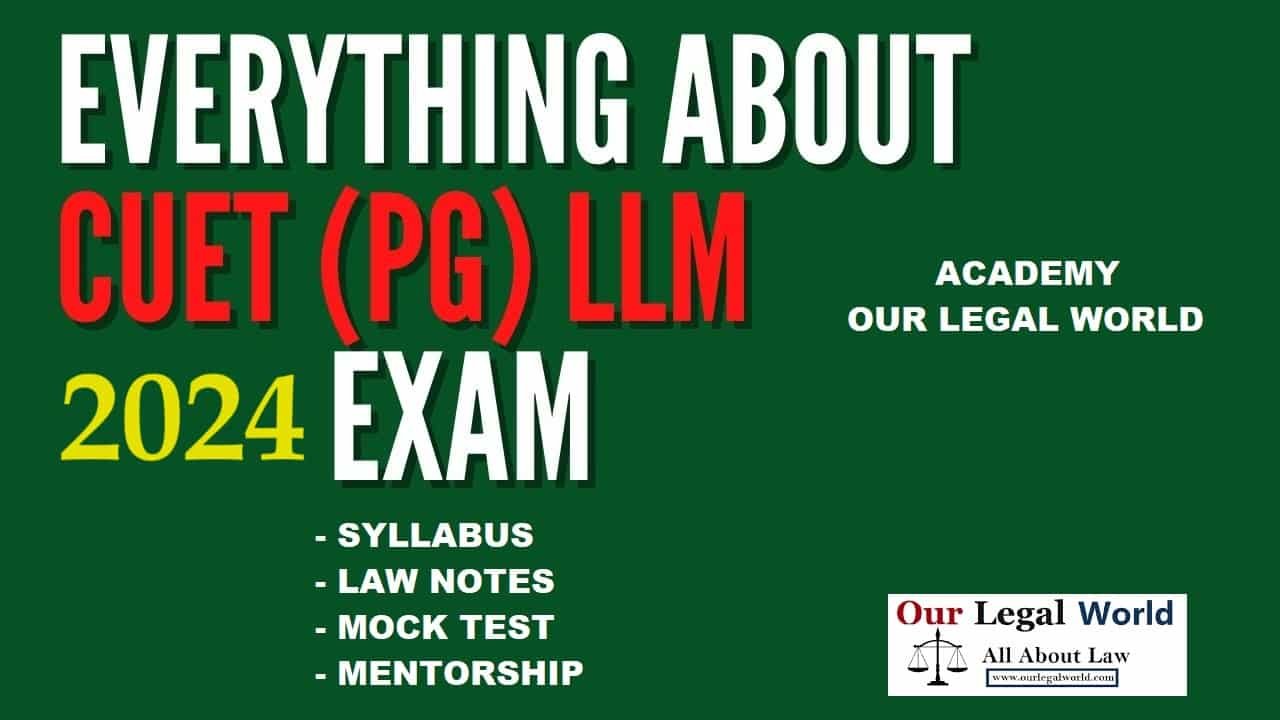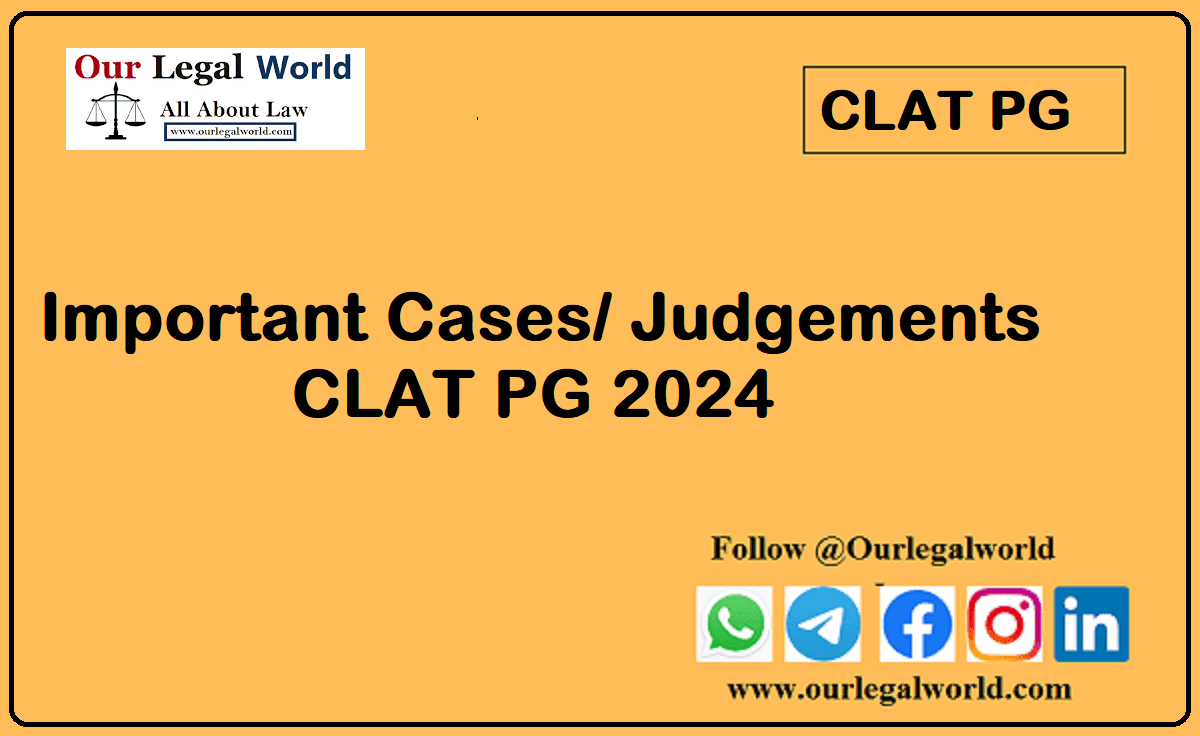CLAT PG Mock Test Series 2022 [Offline] by OurLegalWorld
Mock Test Instructions
- The timing for the Offline Mock – Mock test to be conducted between 26 May to 17 June 2022 will strictly be as per IST (GMT+5.30hrs to 7.30)
- Download OMR sheet : Click here
- Open Question Paper [Link will activated 5 Min. before Schedule]
- Send scanned/image Answered OMR sheet at infoourlegalworld@gmail.com
| Total No. of Questions | 120 |
|---|---|
| No. of MCQs | 120 |
| Total Marks | 120 |
| Marking Scheme | Correct Answer – 1 mark each; Wrong Answer – 0.25 marks deduction |
Schedule
- 26th May 2022 [Free] :- Open Question Paper click here [Answer Key]
- 3rd June [Free]
- 10th June [Available only for OLW Members} available at click here
- 13/14 June {OLW}
- 17th June {OLW}
AILET PG Mock Tests 2022 | NLUD LLM Mock : Click here
[WATU 10]






![Tax Law Internship at Legum Attorney [Chamber of Ashish Panday], Delhi : Apply by 15th May 2025](https://www.ourlegalworld.com/wp-content/uploads/2025/05/IMG_0113-min.png)

